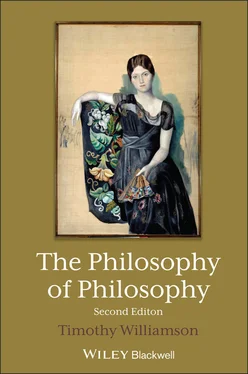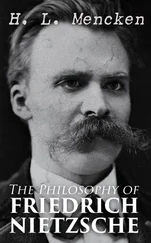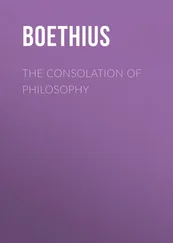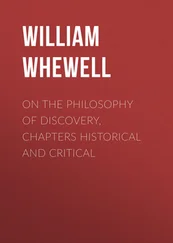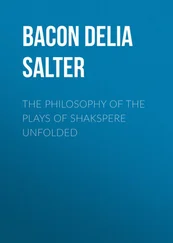Reflection on the negative program did help persuade me that, by itself, the method of cases is insufficiently robust. In principle, there is nothing wrong with using thought experiments to learn about possibilities, some of which are counterexamples to philosophical generalizations. Our verdicts on thought experiments are not peculiarly liable to error. But, on the same anti-exceptionalist grounds, they are also not peculiarly immune to error. The general fallibility of human cognitive faculties applies as much to our verdicts on thought experiments as to our judgments in any other sphere. Of course, when a philosopher makes an idiosyncratic mistake, it will probably be picked up by other philosophers. But suppose that some glitch in our cognitive system disposes humans in general to misjudge a specific thought experiment, perhaps because we are unconsciously relying on a usually reliable heuristic which goes wrong in this special case. How will we notice our collective mistake? By hypothesis, in this case there is no significant variation in ethnicity or gender for experimental philosophy to identify. We may thus treat our false judgment as giving us a datum or Moorean fact, which we use as a counterexample to philosophical theories. If the rest of our data come from verdicts on other thought experiments, what is to alert us to our error about this thought experiment? The danger is that we treat the thought experiment as refuting what is in fact the true philosophical theory in the vicinity, sweep it off the table, and never return to it. That is naïve falsificationism at its worst.
A good strategy to deal with this problem is to hedge one’s bets, by using more than one method. Each method acts as a potential corrective to the others. Where different methods converge on the same answer, our acceptance of it is correspondingly more robust. In particular, we can sometimes use both the case method and the method of model-building, neither having priority over the other. For example, I have used formal models of epistemic logic to argue that knowledge is not equivalent to justified true belief (as epistemologists traditionally use the word “justified”), the same conclusion normally reached in epistemology by Gettier-style thought experiments. Thus the two methods converge on the same answer. 9Although each method by itself may provide knowledge under normal conditions, in the long run we can expect more reliable results from using two or more methods to explore overlapping aspects of an issue and keep a check on each other.
One kind of normal human judgment about hypothetical cases which may sometimes go systematically wrong concerns conditionals . In Suppose and Tell: The Semantics and Heuristics of Conditionals (2020a), I explore what is arguably the primary human heuristic for cognitively assessing conditionals, a procedure which works well under most conditions, allowing us to extract and communicate valuable information stored in our dispositions to judgment about hypothetical cases, which are miniature thought experiments. This procedure is what we use to make judgments for or against the sample “if” sentences which provide most of the data for semantic and logical theories of conditionals in natural language. However, the heuristic cannot be fully reliable, for it is internally inconsistent. That explains why philosophers and linguists have had so much trouble agreeing on how “if” works. But the usual methods of experimental philosophy would not bring the limitations of the heuristic to light, if it is indeed a human universal, since all those who apply it are liable to the same errors. Rather, the heuristic’s inconsistency is demonstrated by logical and mathematical argument.The role of psychological experimentation lies elsewhere: in testing how far humans do indeed rely on that heuristic. That is a task for cognitive psychology, though not specifically for experimental philosophy.
In general, philosophy and cognitive psychology have much to learn from each other about the nature of human thought and its characteristic vices and virtues. Collaborations between philosophers and cognitive psychologists are likely to become increasingly fruitful, and trying to separate philosophy from psychology in the results may often be fruitless. Whether any of that should be described as “experimental philosophy” is another matter. Anti-exceptionalism about philosophy suggests that the psychology of human philosophical thinking is best understood as just a special case of the psychology of human thinking in general. Schematically: philosophers will have most to bring to their collaboration with psychologists by cultivating their distinctively philosophical skills, not by aping the psychologists, just as psychologists will have most to bring to the collaboration by cultivating their distinctively psychological skills, not by aping the philosophers – though, in a successful collaboration, the philosophers will surely learn lots of psychology and the psychologists lots of philosophy. One reason for the qualifier “schematically” is that there is already a continuum between “pure philosophy” and “pure psychology,” with different people at home on different points of the continuum. That is as it should be, and as it is on the continua between “pure philosophy” and “pure mathematics,” “pure physics,” “pure biology,” “pure computer science,” “pure linguistics,” “pure economics,” “pure history,” and so on. Philosophy has deep natural connections with many other disciplines; to give exclusive privileges to any one of them is to misunderstand the nature of philosophy. 10
3. Naturalism
Of philosophers who self-identify as “naturalists,” the more extreme tend to dismiss The Philosophy of Philosophy as an anti-naturalist tract, while the more moderate tend to wonder why it does not make its implicit naturalism explicit. The first edition defends armchair philosophy against extreme naturalistic attacks, while also defending anti-exceptionalism about philosophy as much less different from other sciences in nature and methods than many philosophers like to think. It presents philosophy as an investigation of the same world which other sciences investigate too, and philosophical knowledge as the product of ordinary human cognitive capacities.
As best I can tell, there is an asymmetry between those who regard the book as implicitly naturalist and those who regard it as anti-naturalist: the former are more likely than the latter to have read it. After all, reading a book is an armchair method of learning what it says.
For the front cover of the first edition, I chose Picasso’s “Portrait of Olga in an Armchair,” because the sitter is a young woman, not the stereotypical philosopher in an armchair – an old man with a long beard and a pipe. The subliminal message was that armchair philosophy is not what you might think it is.
In a very loose sense of the term “naturalist,” I probably count as one. The trouble is that the term is also often used much more narrowly, for one who takes the natural sciences (physics, chemistry, biology, …) to provide the model which all other attempts at systematic inquiry should emulate in method. By that standard, even mathematics falls short, since it does not use observation or experiment in the intended sense, even though all the natural sciences rely on mathematics. It is the most obvious example of a science which is not a natural science in any distinctive sense. Another example, I suggest, is philosophy. The reliance on armchair methods is one of the most salient features of both mathematics and philosophy. That is not to deny the relevance of natural science to philosophy, or even to mathematics. It is just to insist that armchair methods have a central role to play in philosophy, and even more obviously in mathematics.
Читать дальше
